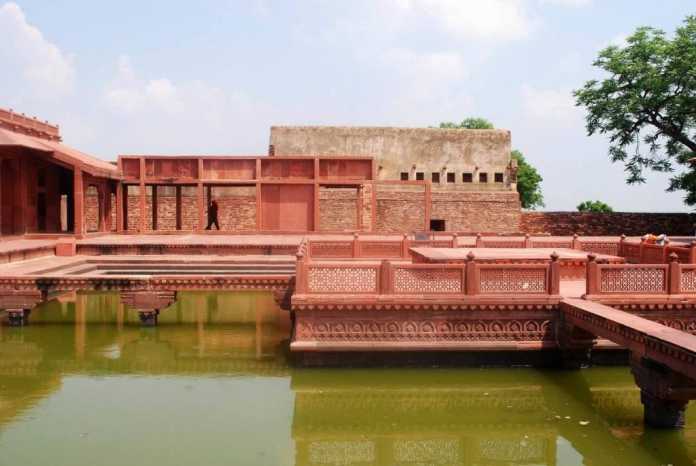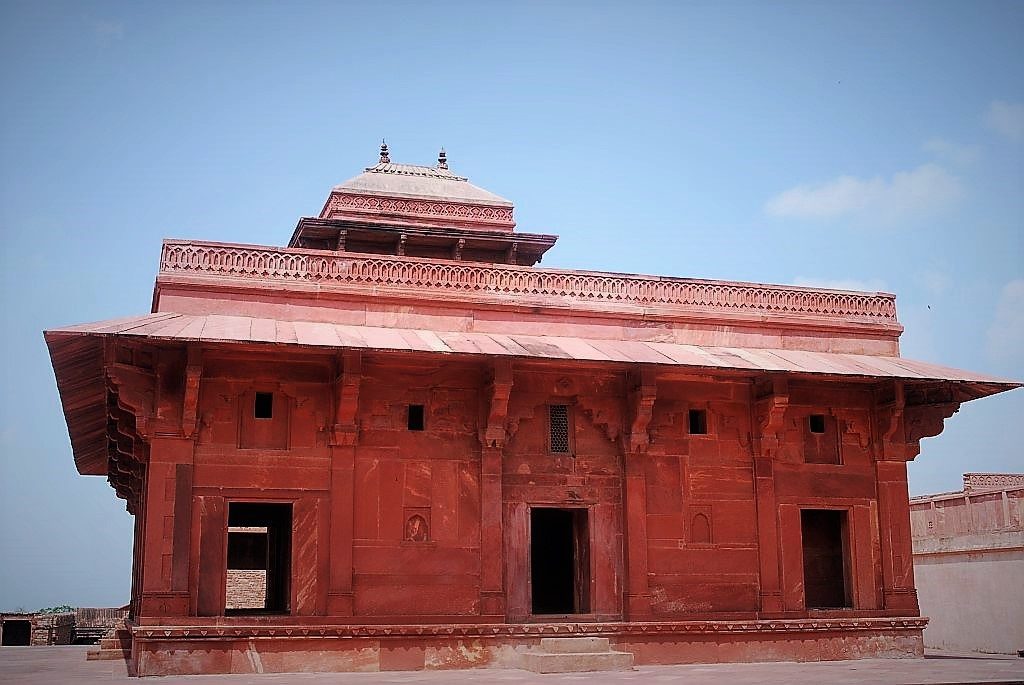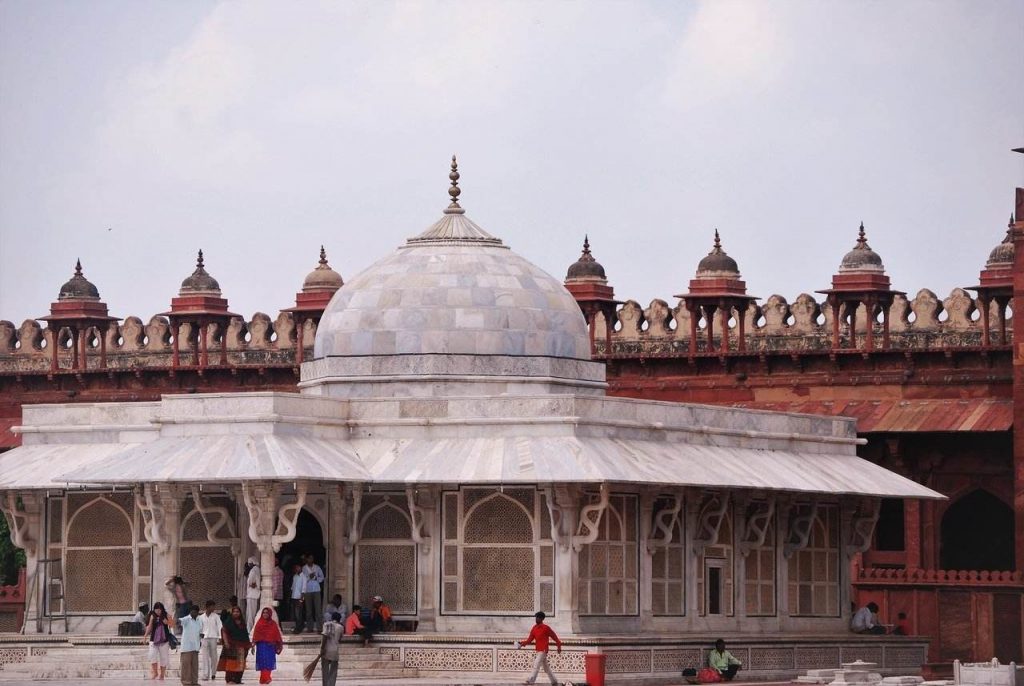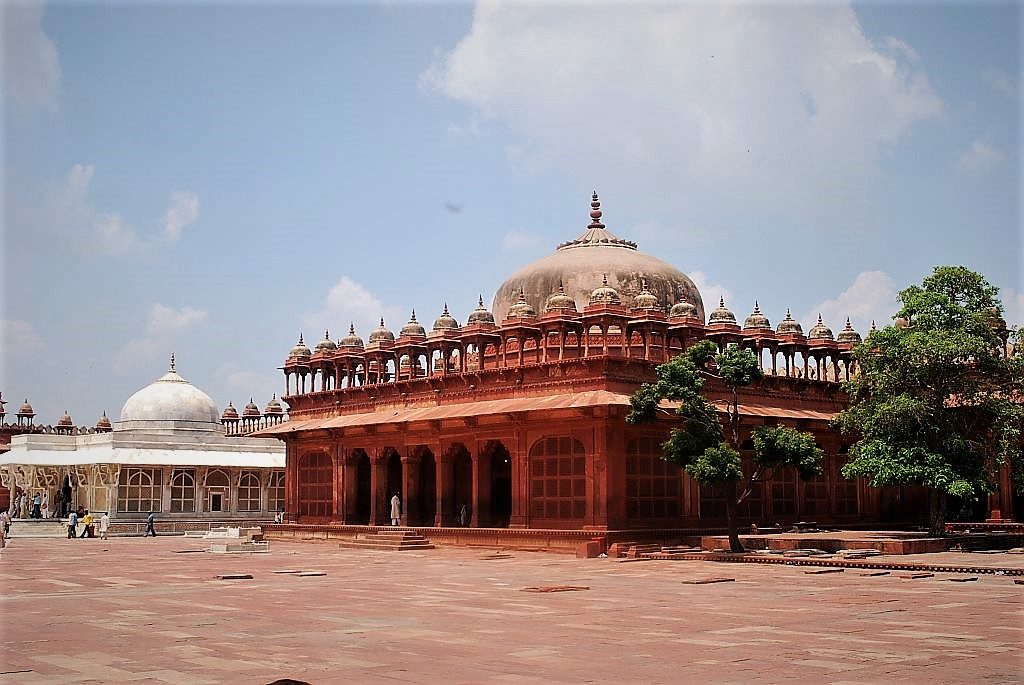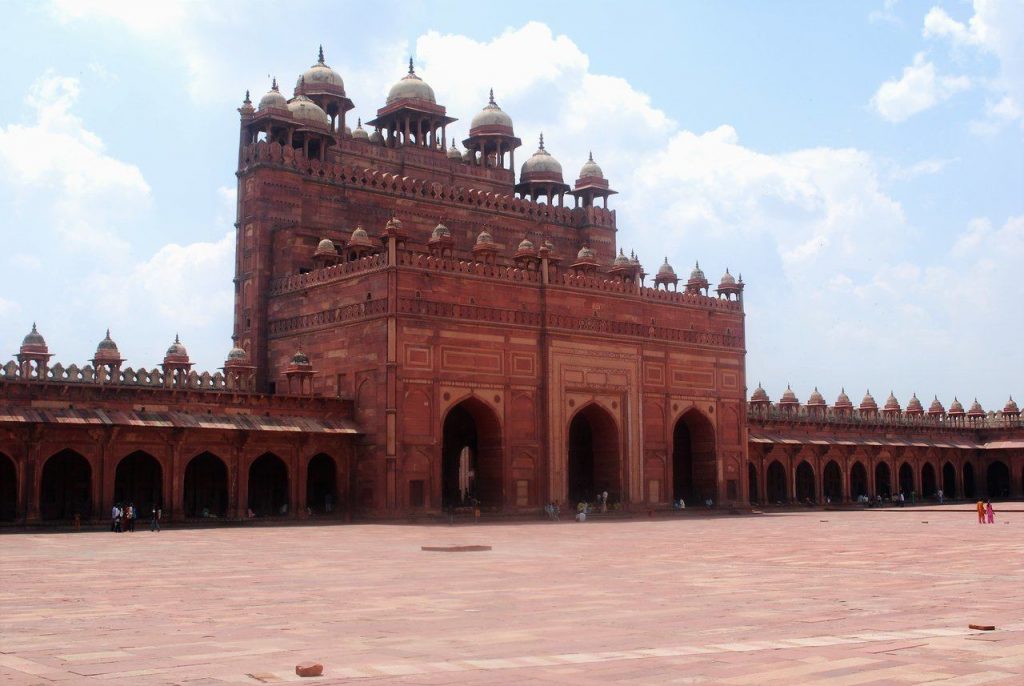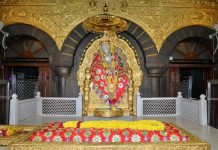“ This is Agra madam, “ said my driver with a shrug as he sped past on the highway while we were chased literally by a group of men shouting some expletives. It was not an incident of road rage. A moment ago, a group of men had literally flung themselves on the car as our driver deftly swerved to the left, avoiding them and averting an accident at the same time. For a moment, we had no idea what hit us. But our driver remained calm and laughed, “Be prepared for more drama. ” We were driving towards Mughal Emperor Akbar’s erstwhile capital city, Fatehpur Sikri and I learnt that these “highway men” were unauthorised guides who accosted tourists on the road . They are extremely aggressive and my driver warned me to be careful as we explored places to visit in Fatehpur Sikri.
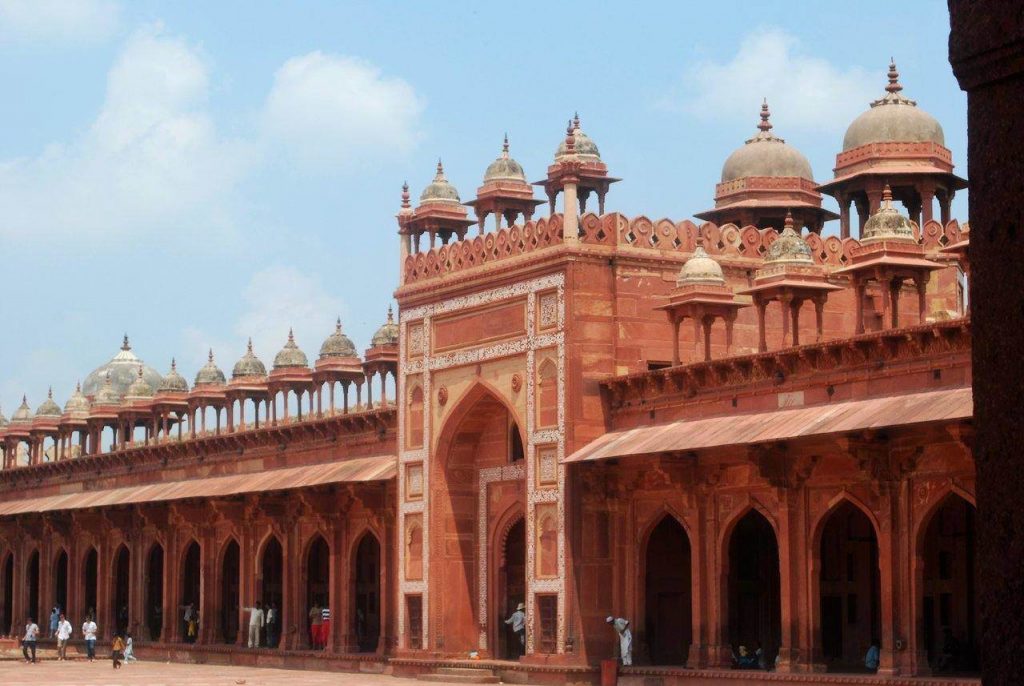
Just as he had mentioned, we were almost mobbed the moment we reached our destination and it took a lot of aggression to ward these men away as we walked towards the beautiful city, clothed in legends. And that is where I got a dose of history of Fatehpur Sikri .
History of Fatehpur Sikri
The history of Fatehpur Sikri dates back to the Mughal era in the 16th century. . Lost and abandoned, Fatehpur Sikri stood like a proud maiden showing off her beauty even as an air of melancholy surrounded it. The rich sand stone walls echoed tales of poignancy and erstwhile glory. It was blazing hot and we were on the road from Agra to Fatehpur Sikri after gazing at the beauty of the Taj Mahal and the grandeur of the fort.
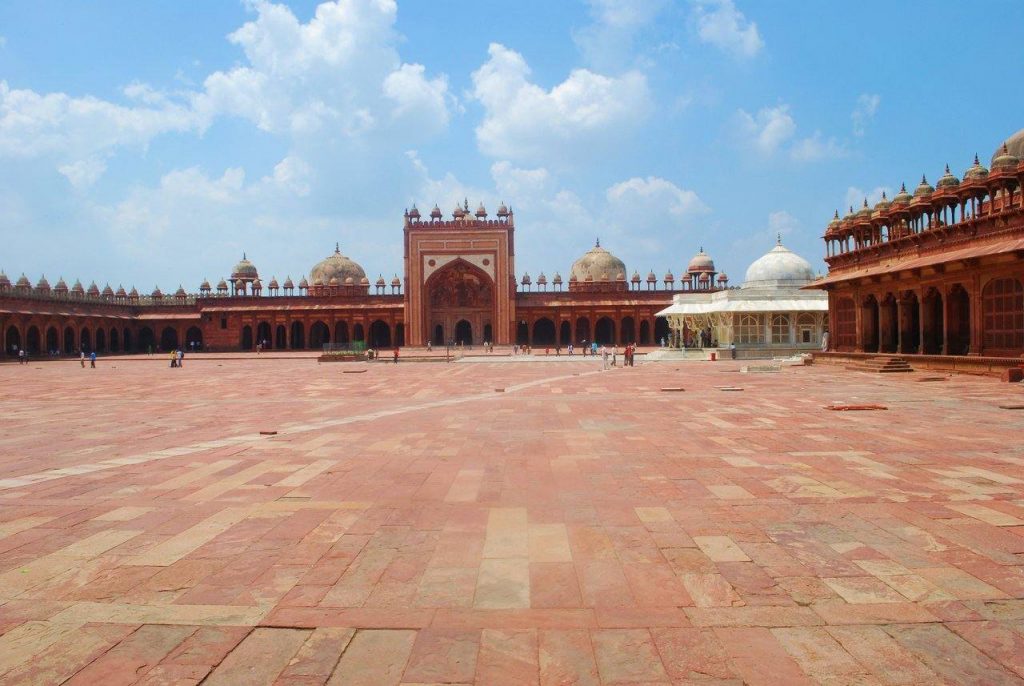
And yet there was something special about the 500 year old ghost town that stood like a faded jewel sparkling in the afternoon sun. No one really knows why Akbar abandoned his capital city, one that he lovingly built and ruled for fourteen years. Many legends echoed from these walls, as it went down in history as the court of Akbar’s legendary courtiers. This was where Tansen sang for rains and Birbal polished his wits.
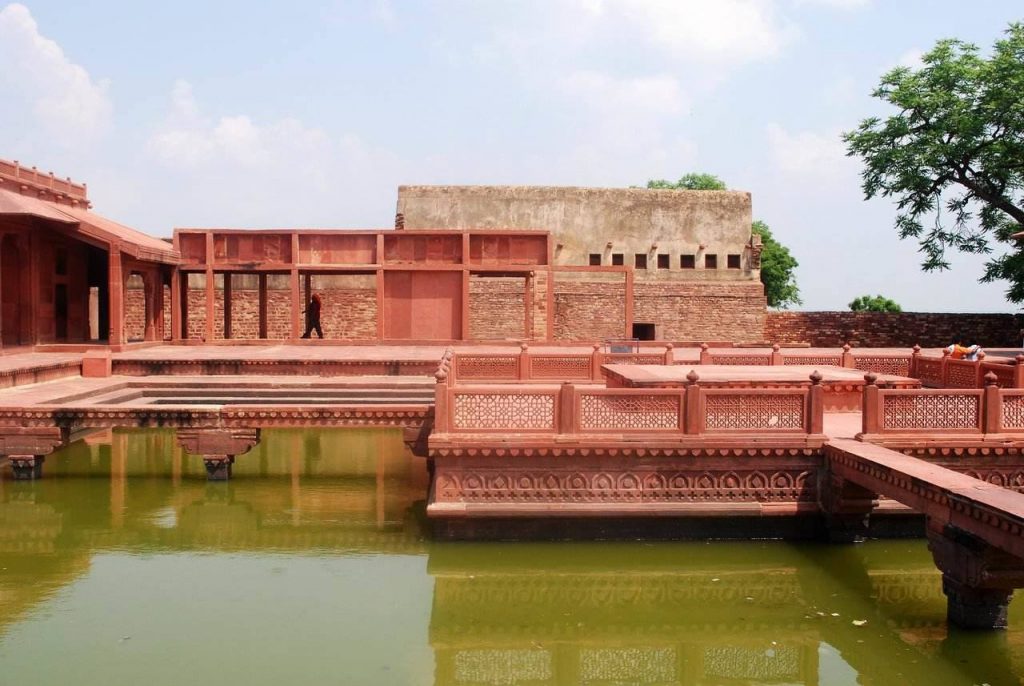
Sikri as a village was first noticed by Babar and not Akbar, when he defeated Rana Sangha in the 16th century. He apparently gave it a title, Shukri, feeling grateful, as a token of thanksgiving.
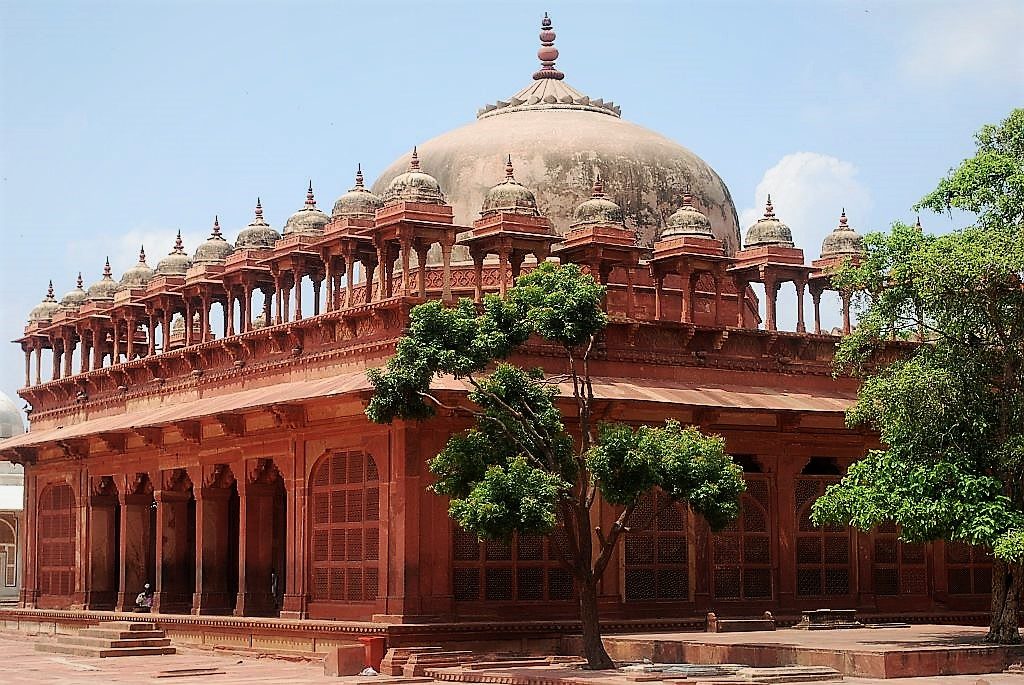
It was also the home of the Sufi saint Salim Chisti who lived in a cavern here. Legend has it that Akbar visited him in the 16th century to seek his blessings for a male heir. Akbar, perhaps on an impulse decided to build his capital here which was painted red with sandstone. And the prediction did come true as Prince Salim or Jahangir was born in this new town.
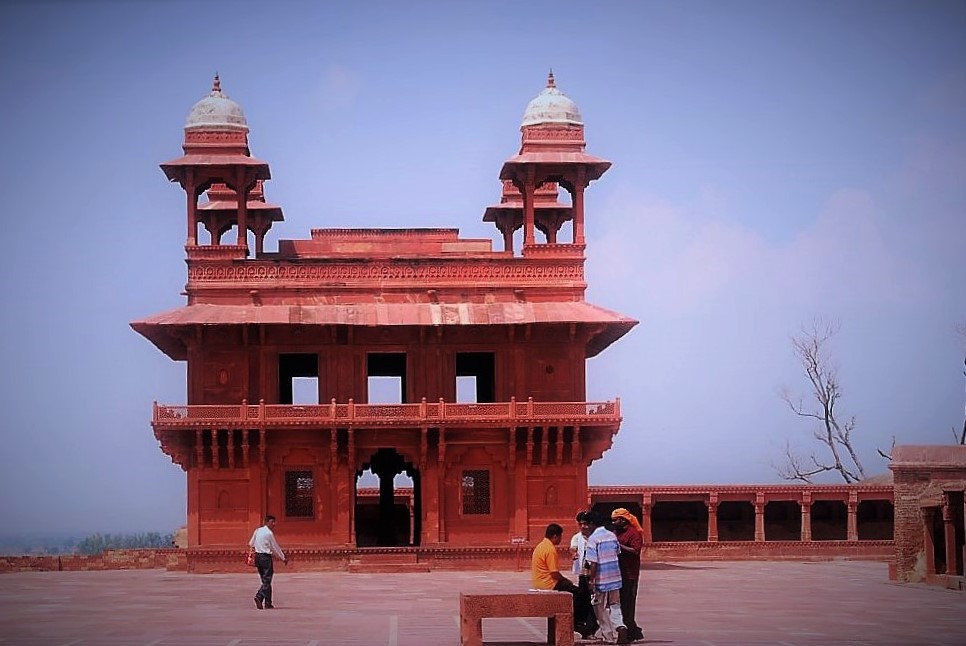
The name Fatehpur came much later, as it was from here that Akbar marched to a successful victory over the rulers of Gujarat and renamed it as the City of victory. The first thing that we saw here was the 54 metres tall Bulund Darwaaza , a gate that was built here to commemorate the victory. It is also one of the places to see in Fatehpur Sikri
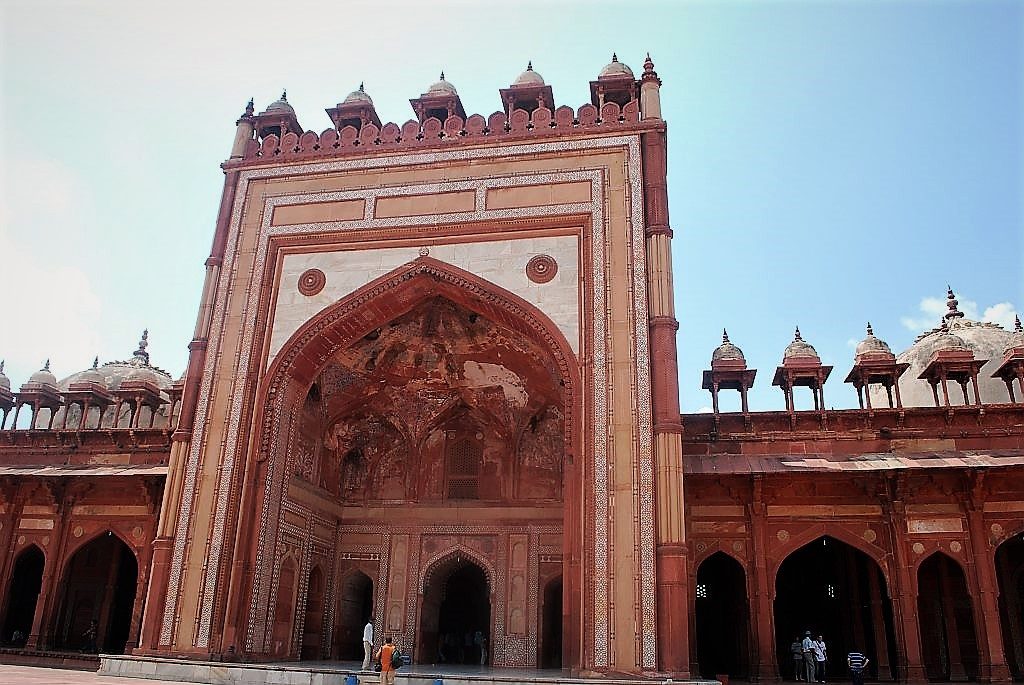
Fatehpur Sikri Dargah
Some locals were enjoying their afternoon siesta while we visited Salim Chisti’s dargah, one of the places to visit in Fatehpur Sikri. Loud music filled the air. Looking around at the edifices, palaces and assembly halls sparkling in red against the blue sky, I was still drawn to the music. Every monument glowed in the warmth of the sun. There are several places to visit in Fatehpur Sikri.
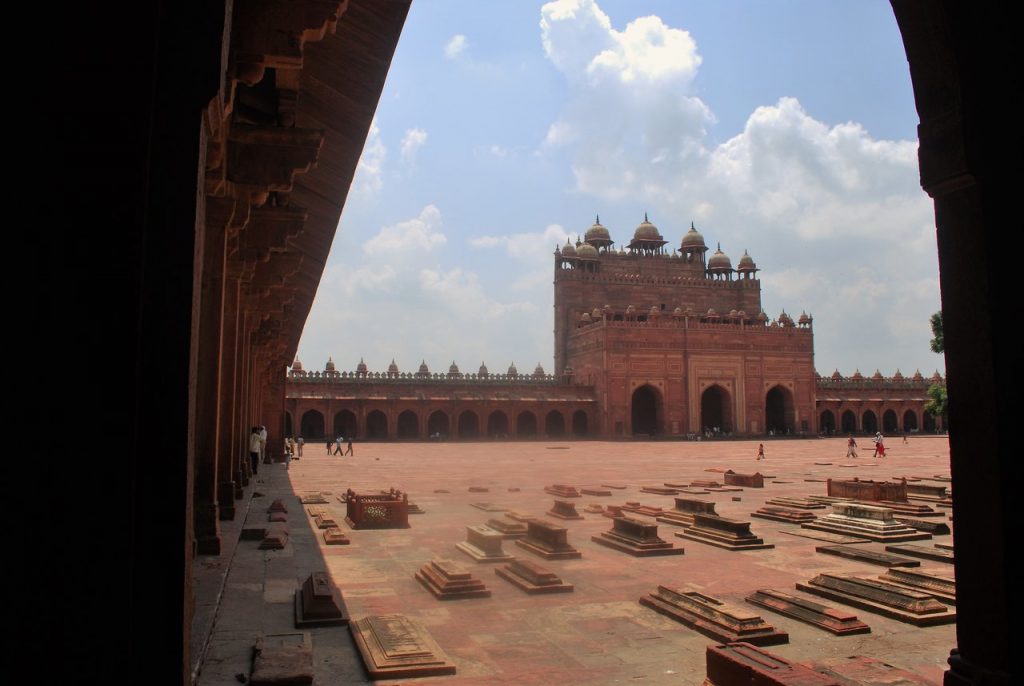
There was the Jami Masjid and the Imperial Palace complex with more than fifteen monuments that included the Diwani i Aam or the public enclosure, Daulat Khanna or the Abode of Fortune with the Dhiwani i Kaas , the Jewel House, the Anup Talao, Jodha Bhai’s palace, Birbal’s house among others.
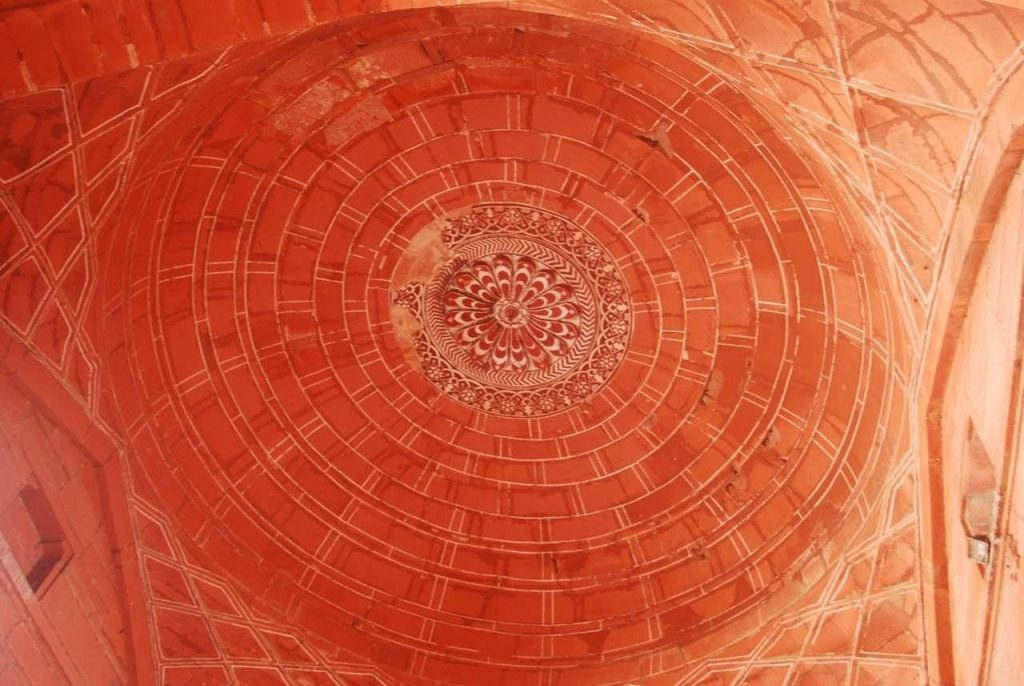
A little monument called the Ankh Michauli or the Blind Man’s Buff was believed to be Akbar’s favourite haunt where he played the game with his harem.
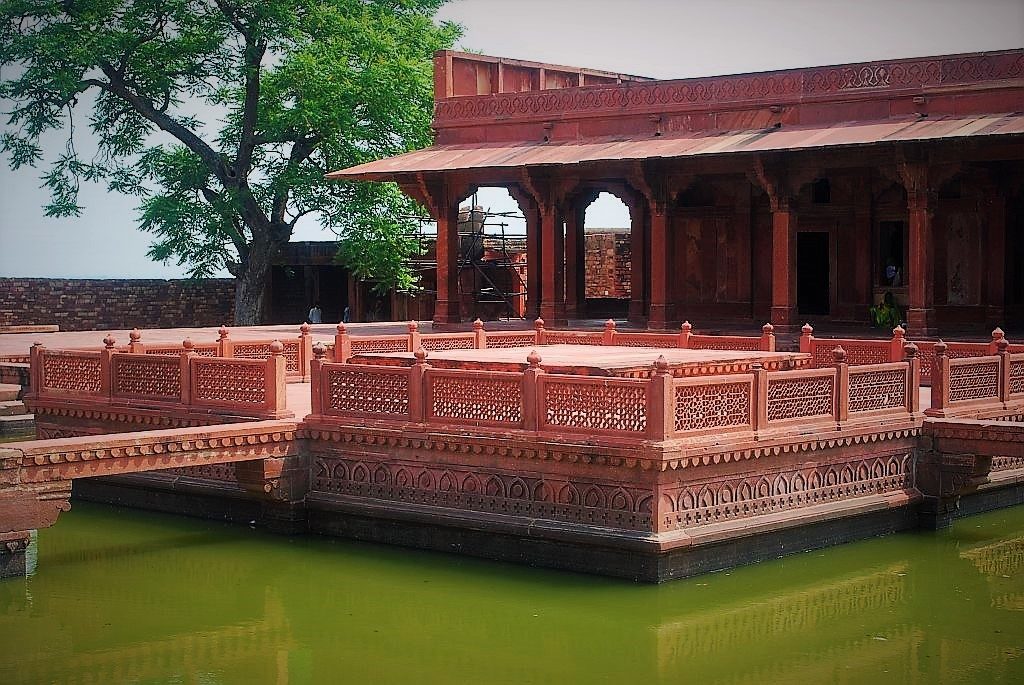
I headed to the ornamental Anup Talao where Tansen regaled the court with his music. The water reflected the monuments as it was connected by small bridges to them. Seated in the island in the centre of the pond, Tansen used to sing four different ragas during the day. Suddenly history was forgotten amidst lore.
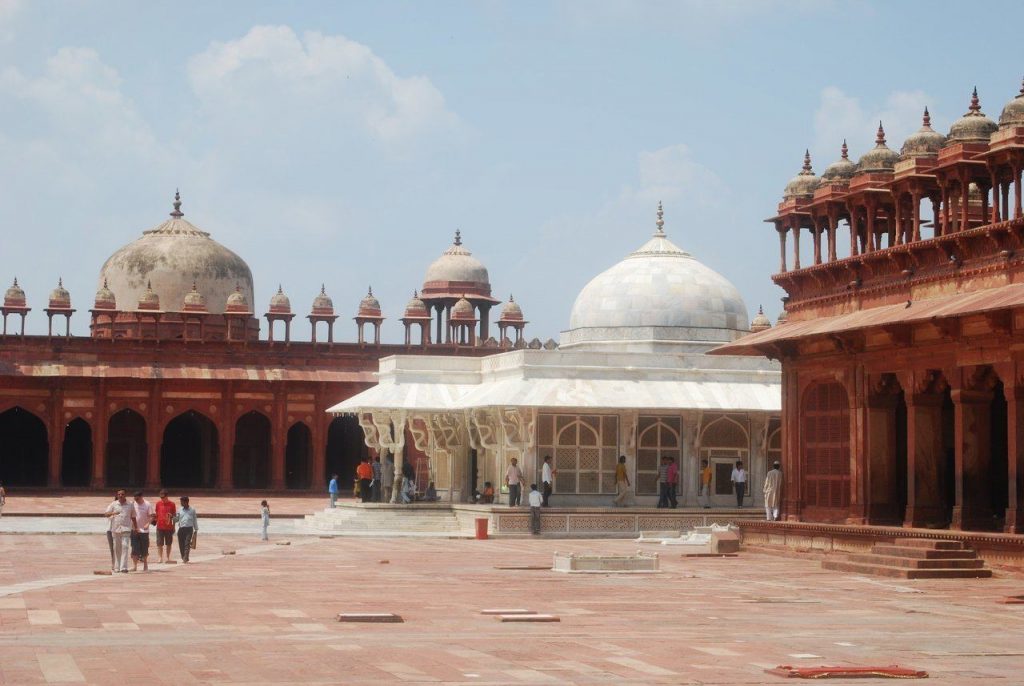
Did Tansen charm Akbar’s daughter Mehrunissa and marry her eventually? Did he really make the clouds melt with rain with raga Megha Malhaar? Did he really die when he was engulfed by the fire that broke out when he was singing raga Deepaka? History does not really answer these questions, but very often these are the stories that linger in our minds.
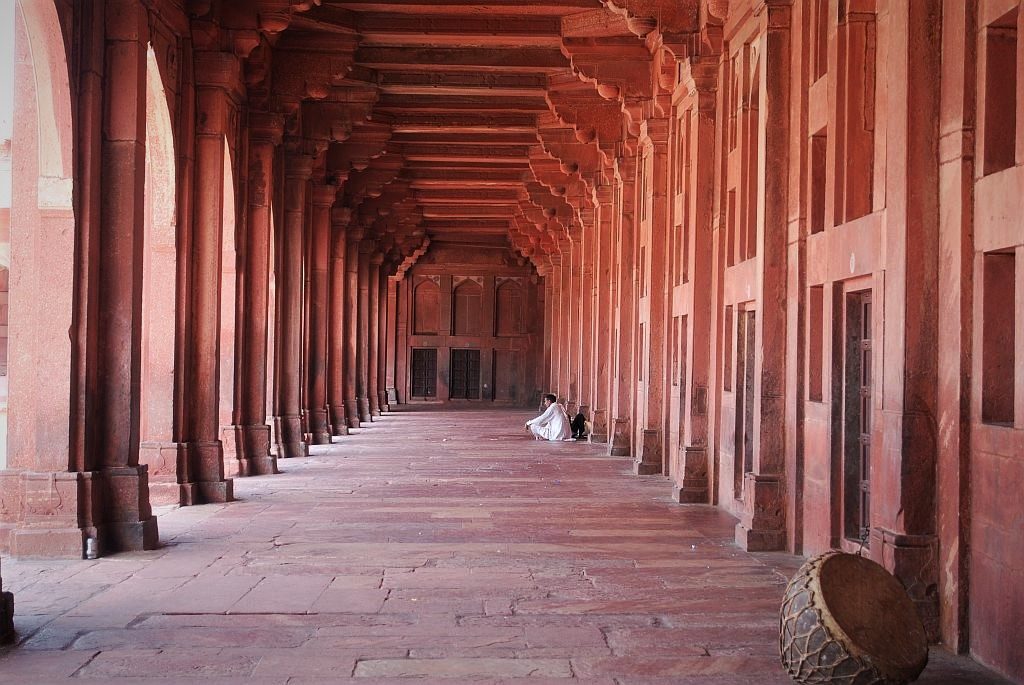
But the story of Fatehpur Sikri defies logic. Here was a king who passionately built the city brick by brick. It was believed that he was at the quarry personally working along with the workers. But the city that took 15 years to build was inhabited for just 14 years. When Akbar moved his capital, he left it as a ghost town.
One wondered if he moved because of the shortage of water or as some historians say that he had no intention of building a permanent capital. Whatever the reason may be, Fatehpur Sikri remains Akbar’s masterpiece as he seems to have left a piece of him in these red walls, even though it lay abandoned. The architecture of the monuments leave a tale behind.
Agra to Fatehpur Sikri distance
Fatehpur Sikri is one of the places to visit in Agra and you can head there by road. The distance from Agra to Fatehpur Sikri is 36 kms and it takes a little more than an hour to get there. If you want to see more about places to see in Agra, then do check out the Agra Tourism Guide where I have been quoted as well. This post is written in collaboration with Expedia.

